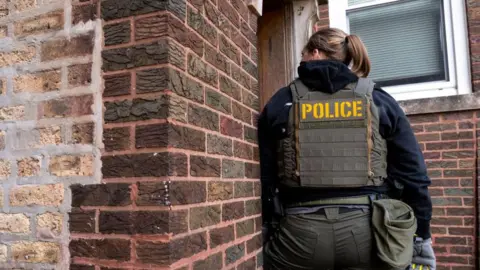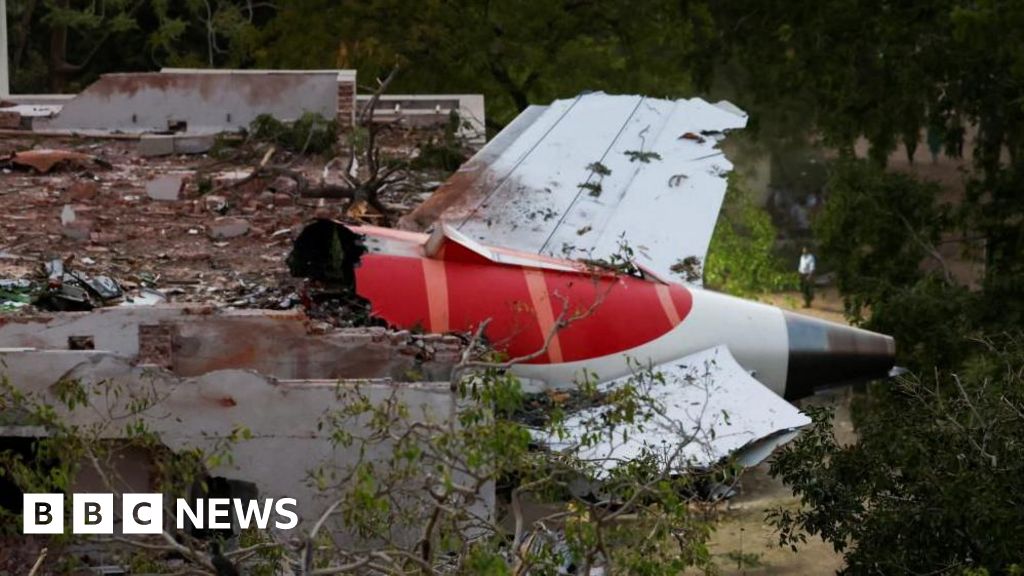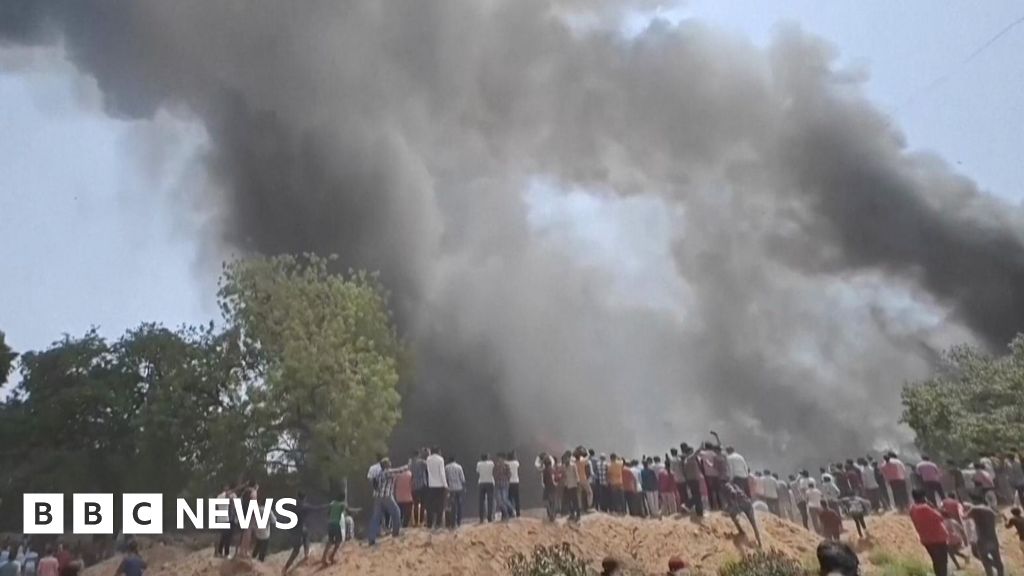ARTICLE AD BOX
Bernd Debusmann Jr
BBC News, White House

 Getty Images
Getty Images
On the campaign trail, Donald Trump was crystal clear: "On day one, I will launch the largest deportation programme of criminals in the history of America."
That promise, opinion polls suggested, proved broadly popular with the American people, including with legal immigrants, who felt that too many people were coming into the country the "wrong way".
Since taking office, the president has widened the scope of his mission, targeting not just criminals, but migrant workers, some student activists and even tourists with visa issues.
For almost five months, these moves met little resistance. But now parts of Los Angeles have erupted in protests after immigrations officers intensified their raids at workplaces.
But who are the migrants caught up in these raids? And who else has the administration targeted?
Here's a look at some of the people who have already been targeted.
Criminals and 'collateral' arrests
Since assuming office, the president has touted plummeting numbers of border crossings and record arrests under his administration.
About 51,000 undocumented migrants were in Immigrations and Customs Enforcement (ICE) detention as of early June - the highest on record since September 2019.
While accurate and up-to-date figures for the total number of immigration detentions since 20 January are not publicly available, White House officials have said they hope ICE can scale up to 3,000 arrests a day, from 660 or so during the first 100 days of Trump's presidency.
Initially, US officials insisted that the operations were "targeted" at criminals and potential public safety threats.
But a significant number of undocumented migrants detained by the Trump administration have otherwise clean records, according to one data tracker.
The Transactional Records Access Clearinghouse - a project from Syracuse University that compiles immigration figures - estimates that of the 51,302 people in ICE detention facilities as of 1 June, about 44% had no criminal record aside from entering the US without permission.
The unrest in Los Angeles was sparked by a series of immigration arrests that netted a total of 118 people, which the Department of Homeland Security said included five gang members.
ICE has characterised those arrested in LA as "the worst of the worst". The agency identified a handful of people with criminal histories, including drug trafficking, assault, cruelty to children, domestic violence, robbery and alien smuggling.
How many of the total have criminal histories, however, is unclear.
The parents of a 23-year-old undocumented migrant, a member of Mexico's indigenous Zapotec community, told the Washington Post their son, who they said has no criminal history, was detained outside a clothing store. The BBC cannot independently confirm the details of this case.
Border tsar Tom Homan has justified these arrests as "collateral" damage, arguing that agents cannot legally justify encountering undocumented immigrants and not detaining them.
Visitors and residents
There have been several instances of tourists being arrested and held in detention centres, including British, European and Canadian citizens.
In April, for example, a 28-year-old Welsh tourist was held for 19 days in an ICE processing centre in Washington state after being denied entry to Canada over what she later termed a "visa mix-up".
In another more recent incident in June, 25-year-old Italian citizen Khaby Lame - the world's most popular TikTok star with 162m followers - was detained at Las Vegas' airport for "immigration violations".
ICE alleged that Mr Lame overstayed the terms of his visa after having entered the country on 30 April. Authorities later said he was granted "voluntary departure" and left the country.
Additionally, in March, Canadian actress Jasmine Mooney was held for nearly two weeks after being detained at the San Ysidro border crossing, where she was attempting to renew her visa to enter the US.
She later described the conditions of her detention as inhumane, and described being kept in a concrete cell with no blanket and limited bathrooms. She was later released without being charged with any crime.
Her case caught the attention of British Columbia Premier David Eby, who said the incident further inflamed Canadian anxieties about traveling to the US.
"The nature of our relationship is so fraught right now that this case makes us all wonder, what about our relatives who are working in the States?" he said in a statement to CBC.
Others, like 34-year-old German national Fabian Schmidt, were held at airports.
Schmidt, who had lived in the US since 2007, was detained on his way into the US from Luxembourg.
In an interview with WGBH, a New Hampshire news outlet, Mr Schmidt said he was asked about a drug misdemeanour charge that was later dismissed and a later DUI that resulted in fines and probation.
The Department of Homeland Security (DHS) has largely avoided commenting on specific cases, but has repeatedly insisted it is operating lawfully.
'Alien Enemies'
Some of the most striking images of the Trump administration's immigration overhaul have come from thousands of miles away, in the Central American nation of El Salvador. There, over 250 people who the government claims are members of the gang Tren de Aragua have been transferred to a mega-prison.
Family members of some of those men, however, have disputed any gang ties, with some arguing that they were swept up as a result of innocent tattoos.
Dubbed "alien enemies", they were removed under a 1798 act that gives authorities sweeping powers to order the detention and deportation of natives or citizens of an "enemy" nation.
"It is really disheartening," Adalys Ferro, the executive director of the Venezuelan-American Caucus, an advocacy group, told the BBC. "All of these decisions are inhumane, cruel and also illegal."
The most high-profile case is that of Kilmar Abrego Garcia, a 29-year-old from El Salvador and Maryland resident who was deported from the US in March.
Various judges - including those on the US Supreme Court - have ruled that Mr Abrego Garcia was deported in error and that the government should "facilitate" his return to the US and his family.
On 6 June, he was returned to the US to face federal criminal charges after being charged in an indictment alleging he illegally transported undocumented migrants while still in the US.
Student protesters
Foreign nationals who participate in political protests have also found themselves in the administration's crosshairs, despite some having permanent residency or valid student visas in the US.
Anthony Enriquez, who leads advocacy efforts at Robert F Kennedy Human Rights, a non-profit human rights organisation, told the BBC that there have been "more and more" green card holders detained since Trump returned to office.
"Immigration authorities feel empowered to conduct arrests that they're legally not allowed to do," he said.
Although the reasons for the decisions vary, over 1,600 international students have had their visas revoked, according to Nafsa, an organisation that focuses on international education.
Many of the arrests follow the White House's crackdown on what it has classified as antisemitism on US campuses, including the arrest of Mahmoud Khalil, a prominent figure during Gaza war protests at Columbia University last year.
The 30-year-old green card holder has been fighting to stop his deportation in court.
Tufts University student Rumeysa Ozturk also spent six weeks in custody before being released.
The university later said that it had been told that Ms Ozturk - a doctorate candidate who participated in pro-Palestinian protests - had had her student visa revoked. She continues to fight her deportation in court.
While these cases have been subject to fierce criticism, ICE has justified some of the arrests by saying that the students participated in activities "aligned" to Hamas.
"A visa is a privilege not a right," US Homeland Security spokeswoman Tricia McLaughlin said in a post on X.

 1 day ago
13
1 day ago
13








 English (US) ·
English (US) ·